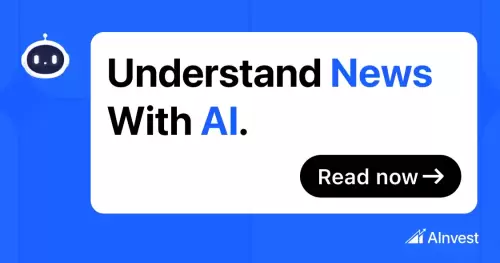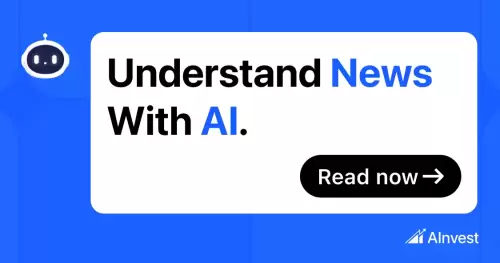 |
|
 |
|
 |
|
 |
|
 |
|
 |
|
 |
|
 |
|
 |
|
 |
|
 |
|
 |
|
 |
|
 |
|
 |
|

The Solana Foundation has disclosed and patched a zero-day vulnerability that could have allowed attackers to mint confidential tokens and withdraw them from unsuspecting users’ accounts.
The flaw, which was silently resolved before any known exploit occurred, has swiftly sparked heated debates around Solana’s network decentralization as several key contributors, including Anza, Firedancer, Jito, Asymmetric Research, Neodyme, and OtterSec, came together to coordinate the patching process.
According to a May 3 post-mortem from the Solana Foundation, the vulnerability was first identified on April 16 and affected Solana’s privacy-focused "Token-22 confidential tokens." These tokens rely on zero-knowledge proofs (ZKPs) to ensure the privacy of transfers, a feature designed to enable advanced and confidential token functionalities within the Solana ecosystem.
On April 16, 2025, the Solana Foundation discovered a zero-day vulnerability in the Token-2022 standard's confidential transfers feature, which could have allowed attackers to forge zero-knowledge proofs to mint unlimited tokens or steal user assets. The Foundation privately…
The security gap originated in the Token-2022 and ZK ElGamal Proof programs, where a cryptographic flaw in the Fiat-Shamir Transformation process had implications for forging proofs. It occurred because certain algebraic components were not properly hashed, undermining the integrity of the proof verification mechanism.
In essence, the flaw might have enabled malicious actors to simulate valid balances and mint confidential tokens—an alarming loophole that, had it been exploited, could have seen batches of tokens spawn out of thin air.
Despite the critical nature of the vulnerability, no funds were lost, and a supermajority of validators had already adopted the patched version within two days.
Solana Patch Sparks Centralization Fears
The rapid behind-the-scenes patching process has nevertheless raised eyebrows among decentralization purists.
A contributor from Curve Finance sparked the discussion by inquiring about the Foundation's ability to swiftly contact validators and whether this level of influence undermines SOL's claims of being a decentralized network.
The concern: such close coordination could facilitate censorship or even orchestrated rollbacks, hallmarks of centralized control.
This seems like a massive vulnerability to have been discovered so quickly. Is there a reason why the snapshot on April 15th was used instead of the genesis snapshot? Wouldn't that have huge implications for liquidity on the chain?
Solana Labs CEO Anatoly Yakovenko responded by highlighting that Ethereum validators, many operated by large staking providers like Lido, Binance, Coinbase, and Kraken, could coordinate similarly in a severe emergency.
"If geth needs to push a patch, I’ll be happy to coordinate for them. We can ping them on the relevant Discord channels or email,” Yakovenko stated.
But not everyone agrees with the comparison.
Solana One Client Risk Exposed
A member of the Ethereum community, Ryan Berckmans, countered that Ethereum's client diversity serves as a safeguard against the kind of single-point-of-failure risks posed by SOL. He noted that Geth, Ethereum's dominant client, holds no more than 41% market share, while SOL currently operates with just one production-ready client, Agave.
"This means that a zero-day bug in the single Solana client is de facto a protocol bug. Change the single client program, change the protocol itself. This is a huge difference," Berckmans argued.
Solana's roadmap offers a partial answer. The highly anticipated Firedancer client, developed in collaboration with Jump Crypto and expected to launch in the coming months, promises enhanced performance and redundancy.
Still, as Berckmans pointed out, true decentralization at the client level may require at least three independent clients, a goal that Solana has yet to achieve.
While the vulnerability was patched swiftly before any real damage occurred, the incident highlights a growing tension in the blockchain world: the trade-off between security responsiveness and decentralization.
Solana's ability to act quickly in the face of a zero-day flaw is commendable, but it has also spotlighted its centralized levers of control.
As Solana continues to evolve with Firedancer on the horizon and more zero-knowledge capabilities in development, the community will be watching closely to see whether the network can strike a sustainable balance between performance, privacy, and decentralization.
免责声明:info@kdj.com
所提供的信息并非交易建议。根据本文提供的信息进行的任何投资,kdj.com不承担任何责任。加密货币具有高波动性,强烈建议您深入研究后,谨慎投资!
如您认为本网站上使用的内容侵犯了您的版权,请立即联系我们(info@kdj.com),我们将及时删除。
-

-

-

- Dogecoin Price Outlook 2025:吠叫正确的树?
- 2025-08-06 08:00:00
- Dogecoin是否将到2025年卷土重来?分析专家预测和市场趋势,以预测Doge的潜在复兴。
-

-

- 行政命令与金融机构:政治偏见是新常态吗?
- 2025-08-06 07:36:53
- 政府是否正在介入以保护保守派和加密货币免受“撤销”的影响?针对金融机构的涉嫌政治偏见的行政命令可能会动摇。
-

-

-

- PI Network的演变:Passkeys,Lockups和分散的梦想
- 2025-08-06 07:23:35
- PI网络随着通行证和锁定奖励而演变,挑战了传统的财务和赋予用户能力。这是数字货币的未来吗?
-































































